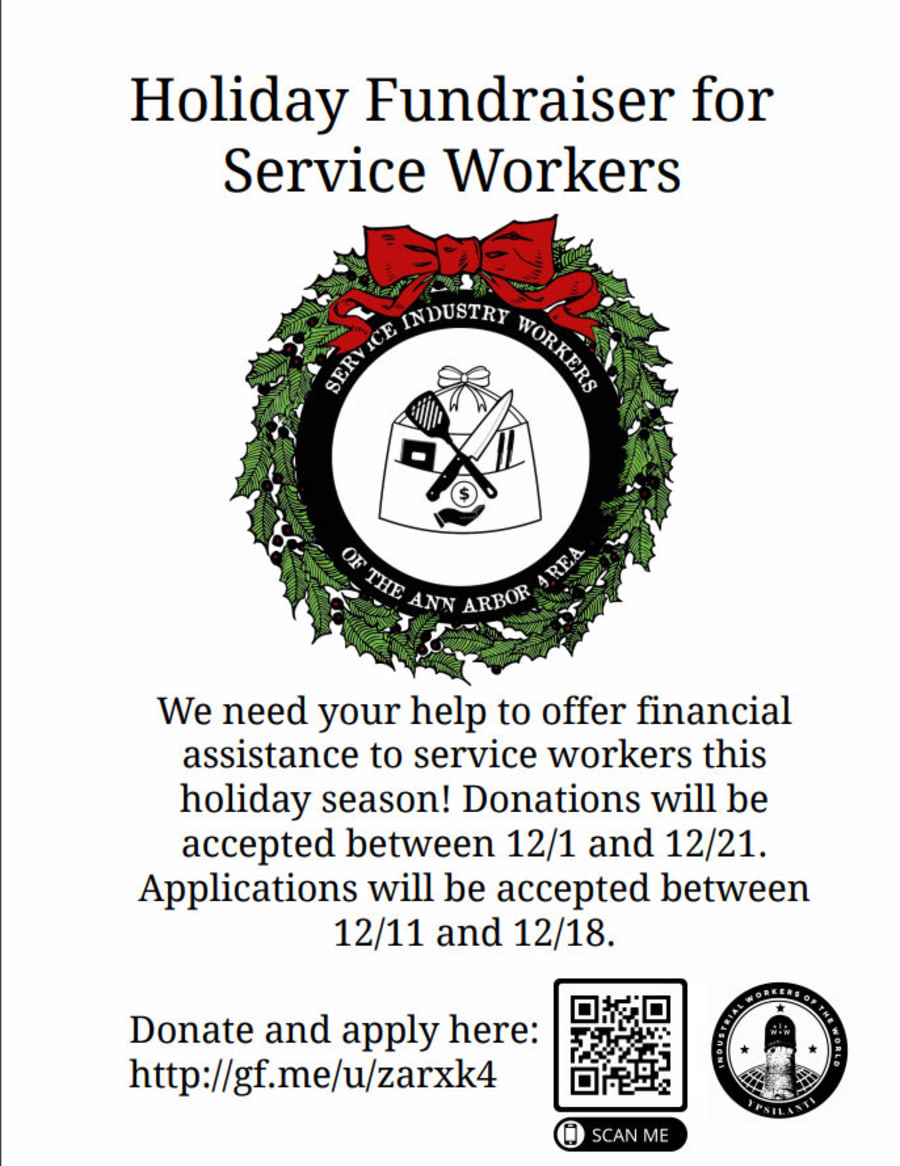ANN ARBOR – A local group called the Service Industry Workers of the Ann Arbor Area, or SIWA3, has launched a fundraiser for service workers in Washtenaw County as the holidays approach.
With statewide restrictions on indoor dining in place to curb rising COVID cases, restaurants and bars are making preparations to survive the long winter ahead.
Recommended Videos
Thousands of servers, bartenders and hosts have been furloughed since March, and with unemployment benefits in Michigan ending on Dec. 26, the future is uncertain.
According to a recent report by University of Michigan economists, lower income workers, including those in the service industry, will experience a longer economic recovery from the pandemic and suffer more long-term losses.
“We recognize the plight that service workers are in right now,” said SIWA3 founder Gabrielle Bussell. “Some workers were telling stories about how they can’t give their kids Christmas presents this year, how they’re having trouble putting food on the table and paying rent.”
SIWA3 has launched a GoFundMe for the effort.
Bussell said the group aims to raise $2,000 for those in need, but that the number will likely increase. As of Monday afternoon, $1,384 had already been raised.
Donations will be accepted through Dec. 21.
For those who need assistance, applications will be accepted Dec. 11-18.
According to Bussell, qualifying applicants must have worked in a bar, restaurant or café in Washtenaw County in the last year and must be unsalaried wage workers.

“One hundred percent of the funds will be distributed evenly amongst all of the qualifying applicants on Dec. 22,” said Bussell. “We want to be able to give people a decent chunk of money.”
SIWA3 began as a Facebook group that Bussell launched on March 15. In June, the group petitioned the Washtenaw County Board of Commissioners to extend the closure of indoor dining until the pandemic no longer presents a threat to public health.
“We are absolutely terrified,” she told A4 in June. “There are essential businesses out there that should stay open but people definitely don’t need to sit down and have a beer or dinner during a pandemic. We don’t think it’s worth it.”
Bussell had been working at Ann Arbor Brewing Company until the establishment announced in May it was closing to relocate. Since then, she has thrown her efforts into organizing and raising awareness full time for service industry workers in the area.
Since the pandemic began, Bussell and her team have received more than 200 testimonials from local service workers about workplace grievances. The information was collected via surveys, meetings, statement and intake forms.
Here are their findings so far:
- 32% of workers reported workplace safety concerns, including: Difficulty enforcing mask wearing and social distancing, not being provided with enough PPE by their employer, concerns over the perils of indoor dining, employers not enforcing safety protocols like mask wearing or social distancing, and threats/intimidation from bosses, customers, and coworkers.
- 19% of workers reported wage theft in the form of unpaid overtime, illegal tip pooling, credit card fees being taken out of their tips, unpaid regular hours, bounced checks, and making less than minimum wage after tips without appropriate compensation.
- 11% of workers reported harassment and discrimination in the workplace including sexual harassment by bosses, sexual harassment by coworkers, wrongful termination due to discrimination, and discrimination by bosses.
- 5% of workers reported employers refusing to allow sick workers to go home.
“We know these numbers, in actuality, are much larger since most workers are afraid to come forward to tell their stories,” said Bussell.
“We’re not really considered essential, yet we’re put out there with the public and are at huge risk of catching COVID. I know so many people who have tested positive for the virus or their coworkers have. Workers desperately need federal assistance and fast. Without that assistance, people in our industry are going to be absolutely decimated.”
To learn more or to make a donation, click here.

